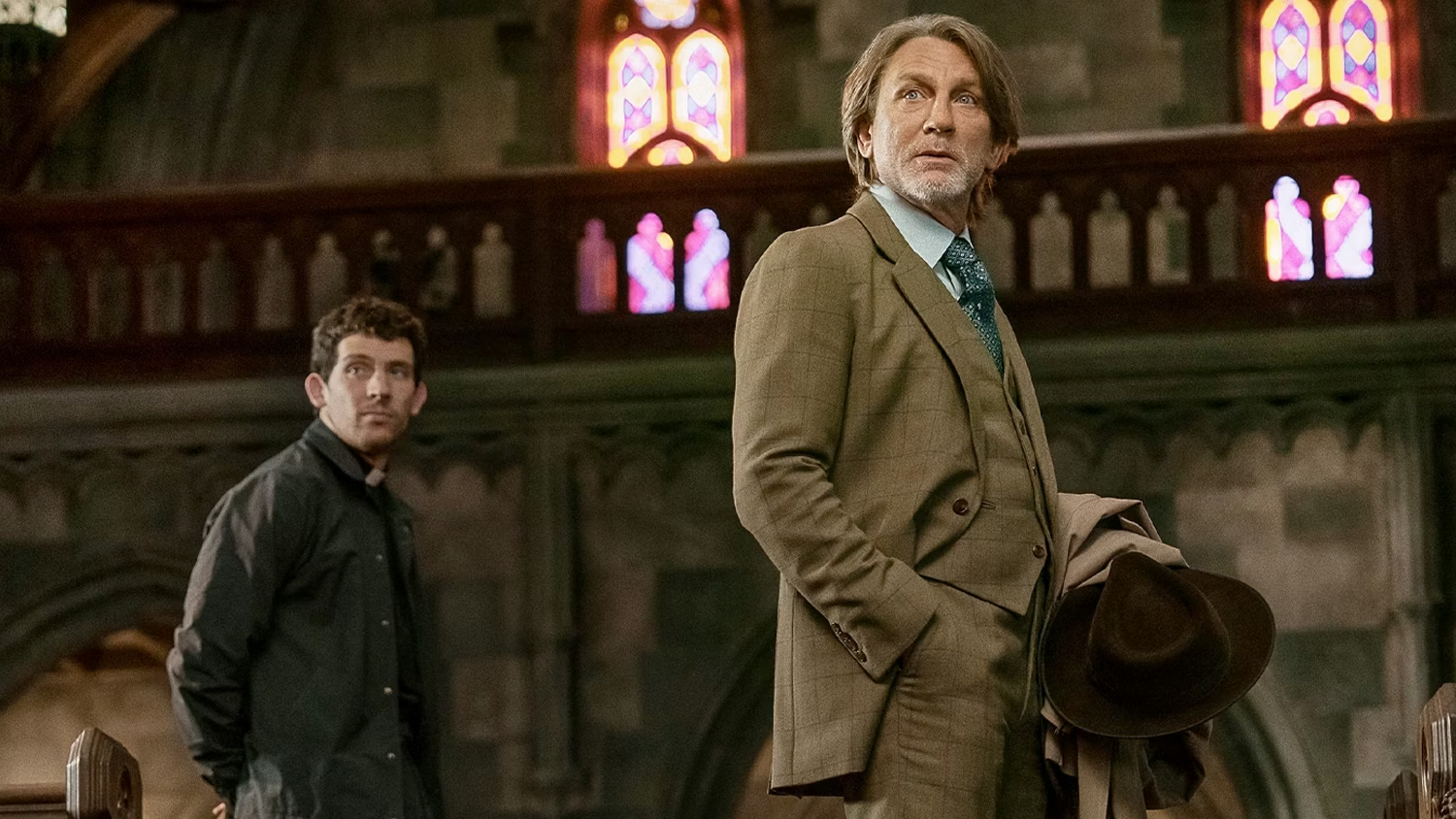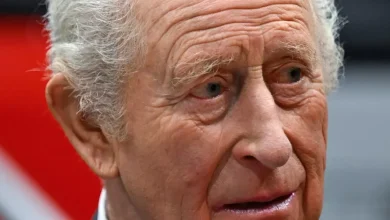Wake Up Dead Man review: Benoit Blanc’s third Knives Out mystery is engrossing, and very funny

When a priest dies in an apparently impossible murder, it is up to Benoit Blanc (Daniel Craig) to once again solve the mystery.
Agatha Christie wrote dozens of Hercule Poirot mysteries. Sir Arthur Conan Doyle wrote over 60 Sherlock Holmes adventures. Rian Johnson, meanwhile, is on only his third Benoit Blanc whodunnit. But give it time. On the strength of Wake Up Dead Man, it feels like he and Daniel Craig’s Blanc could be solving murders for years to come.
Completing an unofficial trilogy, the filmmaker and star have pulled off one of the most consistent and rewarding cinematic triptychs in recent memory, each entry arriving at a singular mood, while maintaining, at its centre, its loquacious recurring hero, the “mere passive obser-vuh of the truth”.
Where the first film, Knives Out, was a crisp autumnal mystery, and follow-up Glass Onion a glamorous summer-island jaunt, Wake Up Dead Man feels wintry and morbid. Set in the small, upstate New York community of Chimney Rock, it is enjoyably macabre, right down to its gothic title-typeface: a chilly mediation on faith and belief — religious or otherwise — while also nurturing a dark sense of humour and a keen eye fixated on contemporary culture-war anxieties.
As ever, Craig’s “world’s greatest detective” is the only returning player here, opening up the floor for another extensive ensemble of colourful characters, each with their own motivations — and skeletons. At its centre is Josh O’Connor’s young priest, Father Jud Duplenticy: self-described as “young, dumb and full of Christ”, a man with a violent past but possessing of a good heart. The murder victim, meanwhile, is Jud’s more senior priest and moral opposite, the self-styled Monsignor Jefferson Wicks (Josh Brolin), a conservative-firebrand fire-and-brimstone preacher, and a keen masturbator.
Rian Johnson still finds ways to twist his narrative hither and thither.
Their small church’s eclectic congregation of true believers, meanwhile, includes Glenn Close’s devout lay person, Kerry Washington’s long-suffering lawyer, Andrew Scott’s washed-up author, Cailee Spaeny’s disabled cellist, Daryl McCormack’s slimy wannabe politician, and Jeremy Renner’s alcoholic town doctor (the Jeremy Renner-branded hot sauce from Glass Onion is never acknowledged).
Fans of any of these actors might feel short-changed by the minor roles they play; in a crowded field of A-list actors who might normally expect to take centre stage, it’s O’Connor who leads this Sunday service. That leaves the majority of the ensemble feeling a bit underused. Even Blanc only really enters the frame in the second act. But Johnson cleverly uses Jud’s arrival in his new parish as an opportunity to introduce the pieces on the chessboard, their simmering resentments and underlying darkness organically emerging through priestly confessionals. O’Connor plays it brilliantly, a remarkable tonal tightrope between unprocessed inner darkness, youthful befuddlement and gentle decency. One scene in particular, played for laughs before taking a serious turn, is beautifully written and acted, O’Connor’s sense of duty and care softly shining.
Johnson, a lapsed churchgoer himself, is skewering but also respectful in how he depicts these different approaches to religion, balancing both the insidious forms of American Christianity warped and weaponised by the far-right, and the more spiritual, selfless traditions of forgiveness, faith and fellowship. He weaves Catholic sacraments like reconciliation and holy orders into the narrative, and finds comedy in Christ. It’s arguably the best Catholic film since the 2021 lesbian-nun thriller Benedetta.
Meanwhile, while Blanc embarks on his own mini-arc, learning a lesson of grace, he remains a “proud heretic”, never straying from his own rational mind, all the while as genial and dapper as ever. Craig is settling into this character more and more, his Southern hokum at full capacity, especially when wrapping his tongue around phrases like “perfidious bubbles of belief”.
And with the intricacy of a clockmaker, Johnson still finds ways to twist his narrative hither and thither. While it doesn’t quite boast the remarkable Uno-Reverso structure of Glass Onion, Johnson’s patient plotting still allows for more satisfying, self-aware delights; Blanc himself directly acknowledges his famous forerunner Agatha Christie for the first time, and bases much of his investigation on The Hollow Man, the famous detective novel by John Dickson Carr which posited the problem of the so-called locked-room mystery. It’s an acknowledgement of a long and storied detective tradition, of which Wake Up Dead Man now belongs. May there be many more Benoit Blanc mysteries to come.
Gothic, iconoclastic, engrossing, slyly excoriating of modern-day America and very funny to boot, it’s another solidly satisfying whodunnit from Benny B. Keep them coming, please.





